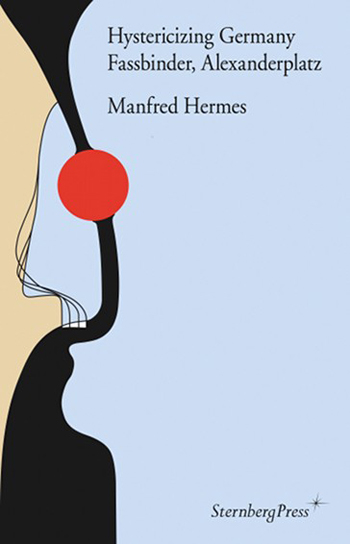I read Manfred Hermes’s excellent book on Rainer Werner Fassbinder’s Berlin Alexanderplatz (1980) in German a couple of years ago and have just now learned that it’s available in English. So first off, let me recommend Hystericizing Germany: Fassbinder, Alexanderplatz.
David Bordwell‘s posted an entry on three new books. He’s written in the past about his appreciation of the prolific novelist and screenwriter Donald E. Westlake and now he recommends Levi Stahl’s “wonderful compilation” The Getaway Car: A Donald Westlake Nonfiction Miscellany. Patton Oswalt‘s Silver Screen Fiend: Learning about Life from an Addiction to Film is “the best memoir I know of being a sheer headbanging movie geek.” And Charles Brackett “now stands revealed as not only a gifted writer but the Samuel Pepys of classic Hollywood.” “It’s the Pictures That Got Small”: Charles Brackett on Billy Wilder and Hollywood’s Golden Age, edited by Anthony Slide, “is an absorbing chronicle of a tempestuous collaboration and the lifestyles of an era.”
Around this time last year, Bordwell was posting an incredible series of entries on three major critics and their writing in the 1940s: James Agee, Manny Farber and Parker Tyler. Now at Movie Morlocks, Susan Doll turns her attention to Agee: “A decade before French critics originated the auteur theory, Agee not only regularly acknowledged directors by mentioning their names in his reviews, but sometimes he talked about consistencies of style.”
Michael Guillén‘s written the third review of Adrian Martin’s Mise en Scène and Film Style: From Classical Hollywood to New Media Art that I’m aware of (following Girish Shambu‘s and Jonathan Rosenbaum‘s). “The history of mise en scène has involved a fascinating variety of applications through an evolving continuum of critical and cultural fashions and nowhere has this been laid out more clearly and helpfully than in Martin’s survey.” Michael then offers several examples of the ways he’s been applying insights from the book to his viewing of films around the festival circuit over the past few months.
Farran Smith Nehme talks about her debut novel, Missing Reels, with Anne Helen Petersen, Matt Zoller Seitz and James Wolcott
February 10 sees the publication of Matt Zoller Seitz’s followup to The Wes Anderson Collection, The Grand Budapest Hotel, “a rapturously focused work,” as Penelope Green calls it, introducing her interview with him for the New York Times. MZS: “The Grand Budapest Hotel is an incredibly rich film, one of his best, definitely the most logistically and maybe thematically complex. It’s kind of every Wes Anderson film stacked one on top of the other, like a wedding cake. But yeah, [The Life Aquatic with Steve Zissou (2004)] is my favorite.”
Farran Smith Nehme’s debut novel, Missing Reels, is “filmish, rather than bookish, besotted with cinema much the way Nick and Nora Charles were with martinis,” writes Karen Heller in the Washington Post.
Shawn Levy’s De Niro: A Life is “a mini Actors Studio class that spotlights what [De Niro’s] thinking when he’s researching and filling in a character, tic by tic, mannerism by mannerism, cufflink by cufflink,” writes Roger Leatherwood at Eat Drink Films.
For news and tips throughout the day every day, follow @KeyframeDaily. Get Keyframe Daily in your inbox by signing in at fandor.com/daily.




